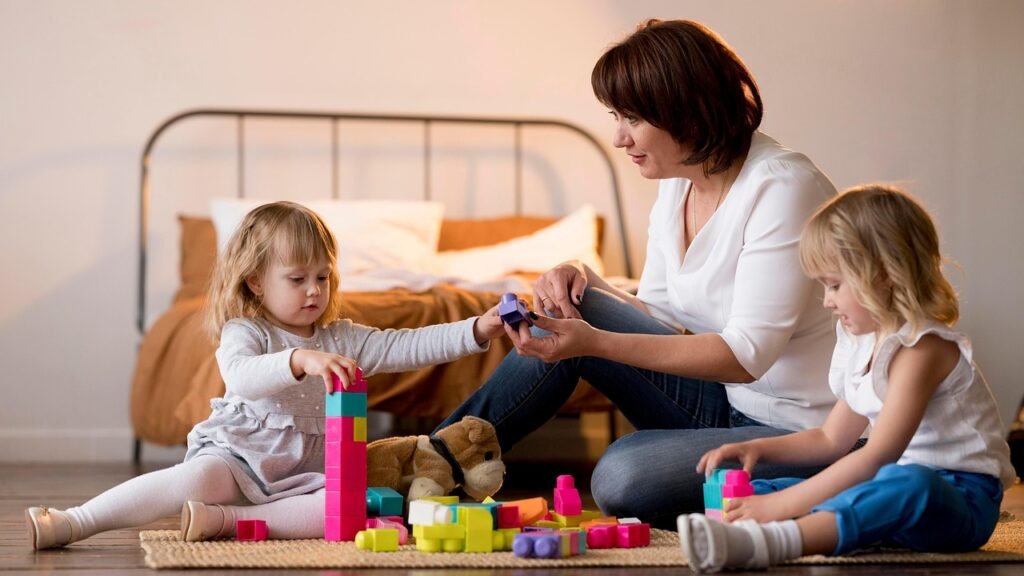Every child develops communication skills at their own pace—but consistent practice and small daily habits can make a big difference. At Vero Speech Therapy, I encourage parents to weave speech and language practice naturally into play, routines, and conversations.
Here are this week’s new tips designed to help strengthen listening, comprehension, and expressive speech—while keeping it fun for both you and your child!
1. Practice “Following Directions” Games
Understanding and following directions is one of the building blocks of strong communication. Turn it into a playful challenge!
🎯 Try This:
Give your child multi-step instructions in a game format:
- “Touch your nose, then jump twice.”
- “Clap your hands, spin around, and find the red toy.”
As your child improves, make the directions longer or sillier. This builds auditory memory, listening skills, and sequencing ability—all essential for classroom success.
2. Narrate the World Around You
One of the easiest ways to build your child’s language is by narrating your day. Describe what you’re doing, seeing, or thinking.
👩👧 Example: “We’re walking the dog. The dog is wagging his tail. Look at those big clouds in the sky!”
This constant exposure to rich vocabulary and sentence structure helps your child absorb language patterns and link words to real-world experiences.
3. Expand on What Your Child Says
When your child speaks, add a little more to their sentence to show them how to grow their language.
💬 Example:
Child: “Car go.”
You: “Yes! The red car is going fast!”
This simple technique, known as expansion, models how to form longer, more detailed sentences—and helps boost both grammar and vocabulary.
4. Encourage Storytelling and “What Happens Next” Games
Storytelling encourages imagination, sequencing, and expressive language—all vital skills for strong communication.
📚 Try This:
Use pictures, storybooks, or toys and ask your child questions like:
- “What do you think will happen next?”
- “Why did the character do that?”
- “How do you think they feel?”
This helps your child practice forming logical thoughts, expressing emotions, and using more complex language structures.
5. Model Calm, Clear Speech
Children learn how to speak by listening to you. Modeling slow, clear, and confident speech—especially during moments of frustration—shows them how to organize their words calmly and effectively.
🌟 Tip: Pause slightly between sentences and use expressive tone. This not only improves understanding but teaches your child natural rhythm and intonation.
6. Celebrate Small Wins
Every word, sound, or sentence your child masters is a big step forward. Celebrate their effort, not just perfection.
🎉 Positive reinforcement builds confidence and motivation—two of the most powerful tools for speech progress.
Every Moment Counts
Speech development doesn’t just happen during therapy sessions—it happens every day, in every conversation. By turning routines into opportunities for learning, you help your child build skills that last a lifetime.
At Vero Speech Therapy, I work with families to create personalized strategies that fit seamlessly into daily life—making progress fun, natural, and stress-free.
👉 Contact Us Today to connect with Pamela Cerrato and discover more weekly tips for helping your child communicate with confidence.
Every word matters. Every moment helps.




